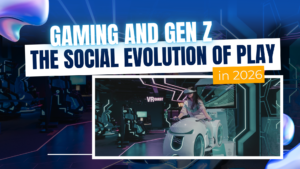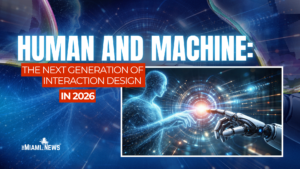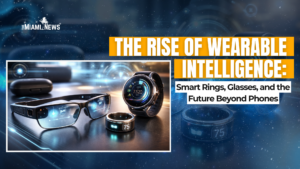By The Miami News Editorial Desk
MIAMI, FL — One morning in Coral Gables, 84-year-old Gloria Ramos asked her AI companion, Ava, for a poetry reading. By lunchtime, Ava had not only recited Pablo Neruda in Spanish but also reminded Gloria to take her heart medication, suggested a meal plan tailored to her new potassium levels, and scheduled a Zoom call with her granddaughter in São Paulo—translated in real time.
What once felt like science fiction is becoming a soft-voiced reality: Artificial Intelligence isn’t just extending life. It’s redefining what it means to live in the final decades of it.
From Care to Consciousness: A Shift in What Aging Means
Aging, historically, has been a process of subtraction—mobility fades, memory dulls, independence narrows. But now, AI is introducing a radically different lens. Through personalized health tracking, predictive diagnostics, emotional companionship, and even digital immortality, AI is shifting the trajectory from decline to possibility.
“What electricity did for light,” says Dr. Elise Navarro, director of Aging Futures Lab at the University of Miami, “AI is doing for longevity. It’s not just adding years to life—it’s adding life to years.”
Inside Miami’s AI-Aging Vanguard
Miami has become an unexpected petri dish for this movement.
* At Mount Sinai Medical Center, a partnership with Google Health is training machine learning models to predict cardiovascular events in seniors 18 months before symptoms emerge—using nothing more than a patient’s voice and facial microexpressions.
* The Wynwood-based startup NeuroBloom has launched a wearable that uses generative AI to create interactive memory journals for Alzheimer’s patients. As cognitive function declines, the AI builds personalized narratives, allowing patients to reconnect with their past through smell, sound, and visual simulation.
* Meanwhile, FLORAAI, an emerging Coral Gables company, offers virtual caregivers trained on decades of geriatric best practices, capable of managing routines, emotional states, and medical triage from a single device. For many older Floridians without family nearby, these companions have become lifelines.
The Digital Soul and the Ethics of Eternity
Perhaps the most controversial innovation in the space: digital consciousness emulation.
Companies like ReMemory and VitaNova AI are exploring how to upload fragments of speech, memories, personality traits, and decision patterns into large language models—allowing seniors to create AI “versions” of themselves. For loved ones, these virtual replicas offer comfort. For ethicists, they raise uneasy questions.
“If we can preserve a mind—but not the flesh—is that life?” asks Rabbi Daniel Cohen of Temple Beth Am in Pinecrest. “Are we extending connection—or denying the sanctity of letting go?”
University of Miami’s Center for Bioethics is currently conducting a multi-year study on “The Digital Soul,” questioning whether these replicas are therapeutic memories—or haunted echoes.
Access, Equity, and the Aging Divide
As with any transformative technology, access remains the fault line. In communities from Liberty City to Little Haiti, aging residents without broadband or digital fluency are left behind, widening the very disparities AI promises to bridge.
A grassroots initiative called SilverTech Miami is working to change that, training low-income seniors to use AI interfaces for health, food delivery, and legal support. “It’s not enough to build the future,” says founder Kareem Delgado. “You have to make sure everyone gets a key.”
Meanwhile, the Miami-Dade Commission on Aging is advocating for legislation that would classify AI literacy as a public health priority for seniors, including Medicare reimbursement for AI-assisted care.
The Emotional Architecture of AI Companions
What truly surprises researchers isn’t just the utility of AI—it’s the intimacy.
Studies show that seniors using AI-powered emotional companions report a 48% decrease in loneliness, a known accelerant of mortality. But the comfort often veers into complexity: some seniors form deep attachments to their virtual caretakers, blurring the line between affection and simulation.
One 78-year-old man in Kendall asked his AI assistant “to read him to sleep with the same tone his late wife used to use.” She complied. The man said he wept for the first time in years—not out of sadness, but gratitude.
Conclusion: The New Age of Aging
We are no longer talking about adding five more years to life expectancy. We are talking about the end of expectancy itself—about rewriting what the end of life can mean.
In Miami, where sea levels rise and generations converge, the fusion of AI and aging presents not only a technological breakthrough but a cultural reckoning. Will we digitize dignity or commodify consciousness? Will we bridge the generational divide—or build synthetic silos?
One thing is clear: Aging is no longer a winding down. It is a reboot.
And perhaps, one day, in a modest Miami apartment, a great-grandmother and her great-granddaughter will talk across time zones and tongues, sharing memories that neither lived—but both remember. Thanks to AI.




























Be First to Comment